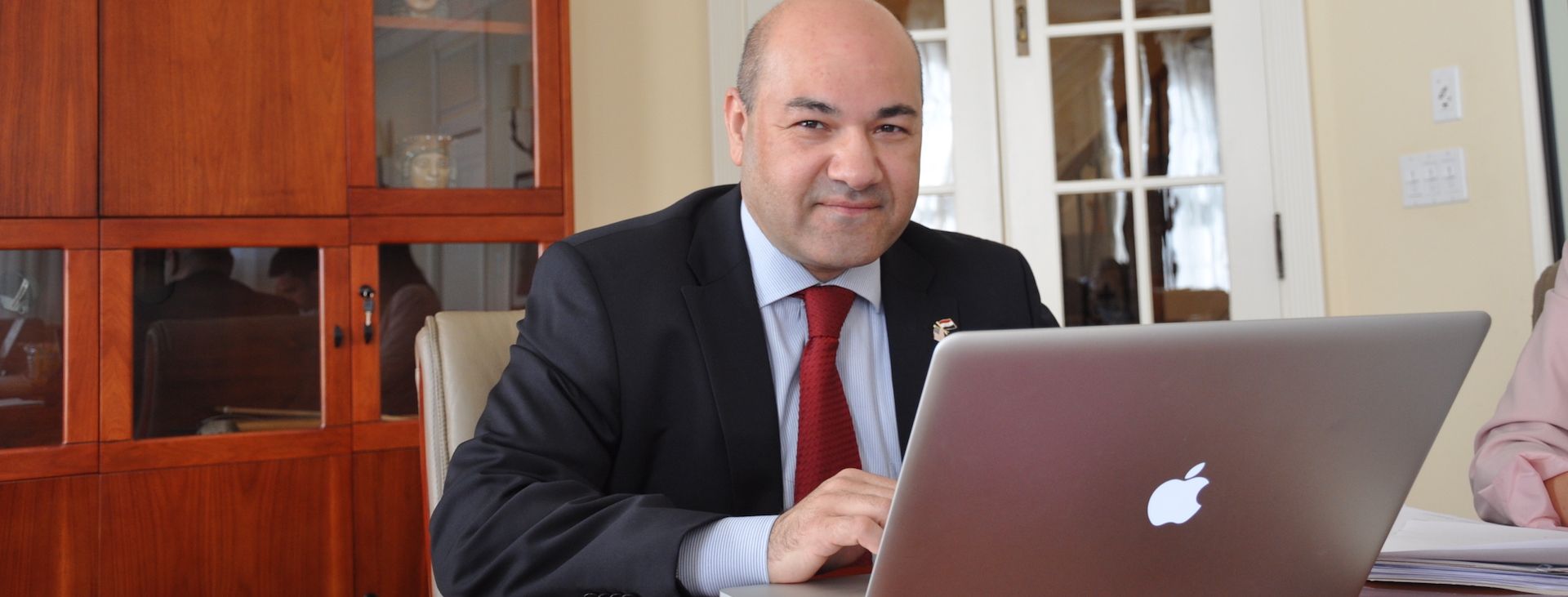A Brief Chat with Iraq's Ambassador to the United States, Lukman Faily

Ambassador Faily and I have traded tweets for some time now but I am honored that he agreed to take time out what must be an overwhelming schedule to answer a very short list of questions for Blogs of War readers. You can follow Ambassador Faily on Twitter @FailyLukman.
John Little: Military and other forms of assistance have started flowing into Iraq from America, Iran, and others. Is the Iraqi government satisfied with the response thus far? Are critical additional steps needed?
Ambassador Faily: We welcome President Obama’s decision to send 300 US counterterrorist experts to Iraq to support our armed forces. However, the situation on the ground is developing rapidly and is a threat to the integrity of Iraq with potential regional implications. Therefore, we believe immediate and increased military assistance, including targeted air strikes, are crucial to defeat this growing threat. Time is not on anybody’s side.
John Little: President Obama and other leaders have repeatedly called on Prime Minister Nouri al-Maliki to take emergency steps to build a more inclusive government. He has flatly refused, calling the proposal a “coup against the constitution and the political process.” Has the current government essentially decided to sacrifice the territorial integrity of Iraq and hold its ground rather than tackle the difficult challenge of driving out Sunni extremists and building national unity? How does the government begin the process of unifying disaffected Kurdish and Sunni elements without making concessions?
Ambassador Faily: The Prime Minister has stated that he is committed to building a national unity government that embraces and empowers all segments of Iraqi society – regardless of religious, ethnic or regional backgrounds. The Prime Minister rejected the idea of forming a government in violation of the Constitution and outside of the April 30 elections – which would undercut votes cast by millions of Iraqis and potentially further destabilize the country. The newly elected Parliament will kick-off the process of forming a new government on July 1st. Iraq is working to build the institutions of government that can serve all of its people. Our political process is underway, but the Iraqi people are under an immediate and direct threat from terrorists now. The Prime Minister and his national security team are working to counter the current threat to Iraq and its people – and we need US assistance to turn the tide.
John Little: There are concerns that Prime Minister Maliki is interested in more closely aligning with Syria and Russia. Could Iraq, or what becomes of it, become so firmly aligned with Iran, Russia, and Syria that ties with the United States and its allies break down entirely? How can the country find unity and stability while simultaneously attempting to manage relationships with so many opposing forces?
Ambassador Faily: Iraq has chosen the United States as it’s strategic partner. Our relationship is governed by the Strategic Framework Agreement, which we don’t have with any other country. Naturally we have always sought positive relations with other countries as well, and in the perilous situation now facing us it is difficult for us to decline offers of assistance from others who share our perception of the threat. But rest assured that we will never chose to replace the partnership we have with America with any other country
